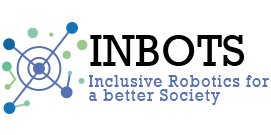At INBOTS we are making a deep study on how interactive Robotics evolves and the effects of the conjunction of this technology with Artificial Intelligence in the different spheres of our daily life. One of the main areas of discussion is about the workplace and how robotics will change the type of task that human beings produce and the reduction in the volume of workers required for them. For years, it has been said that the highly skilled jobs would be the last to be replaced by robots and AI, but a couple of weeks ago we were surprised by an article published in the British newspaper “The Guardian” that started like this: A robot wrote this entire article. Are you scared yet, human?

The article went on to explain: “We asked GPT-3, OpenAI’s powerful new language generator, to write an essay for us from scratch. The assignment? To convince us robots come in peace”. And then followed a reflection, perfectly spun, written by a robot to which it was easy to associate emotions and a life path, like to any other human being.
In the article, the “essayist robot” aims to shed light on the controversy over AI and the risk of loss of control over this technology in favour of the disappearance of the human being. To achieve this, it relies on reflections and arguments based on all the knowledge it has been able to acquire through the Internet.
will robots replace human beings, even in the high skilled jobs?
There is a big question raising from this milestone, will robots replace human beings, even in the high skilled jobs? The truth is that there is still a long way to walk in order to have an AI leading a company, this technology is developed in order to contribute with a number of tasks, but a main order must be given, what makes of AI a tool for human beings.
The article was written by GPT-3, Open AI’s language generator, a cutting-edge language model that uses machine learning to produce human like text. To create the article, GPT-3 was given some instructions and the first paragraph of the text. GPT-3 produced eight different outputs, or essays and as “The Guardian” says, “each was unique, interesting and advanced a different argument. The Guardian could have just run one of the essays in its entirety. However, we chose instead to pick the best parts of each”.
This shows how AI becomes a producer of information from which a human being selects the best conjunction of lines to create a valuable article.
“Editing GTP-3’s op-ed was no different to editing a human op-ed” argued “The Guardian” Are we talking about an AI capable of reasoning and arguing in the same way as humans?
